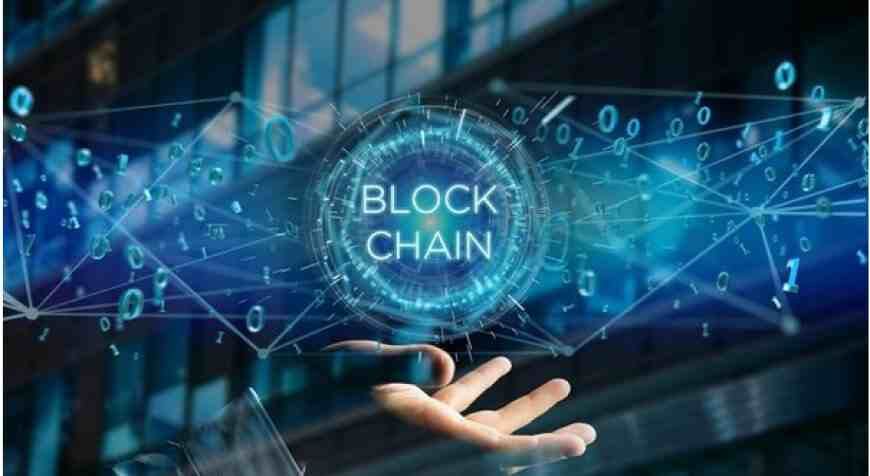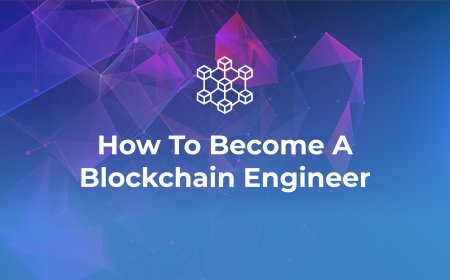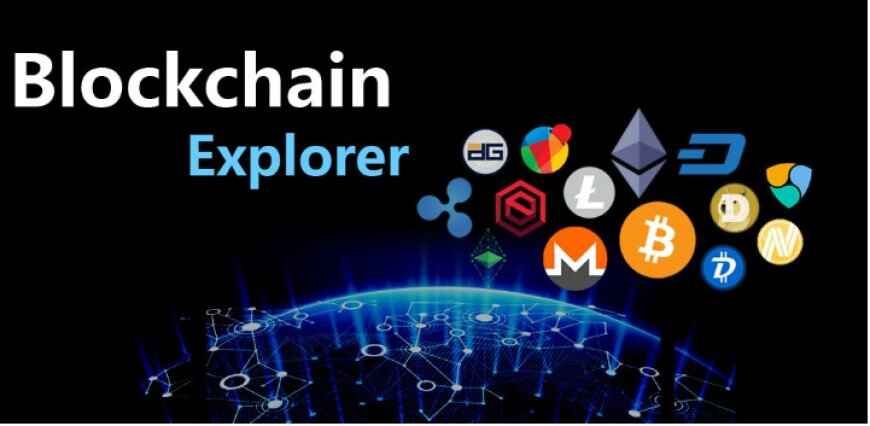How to Become a Blockchain Developer | Must-have skills
Explore the path to becoming a blockchain developer with essential skills. Master programming, cryptography, and smart contracts, while staying updated on industry trends. Learn to develop decentralized applications (DApps) and embrace continuous learning for success in this dynamic field.
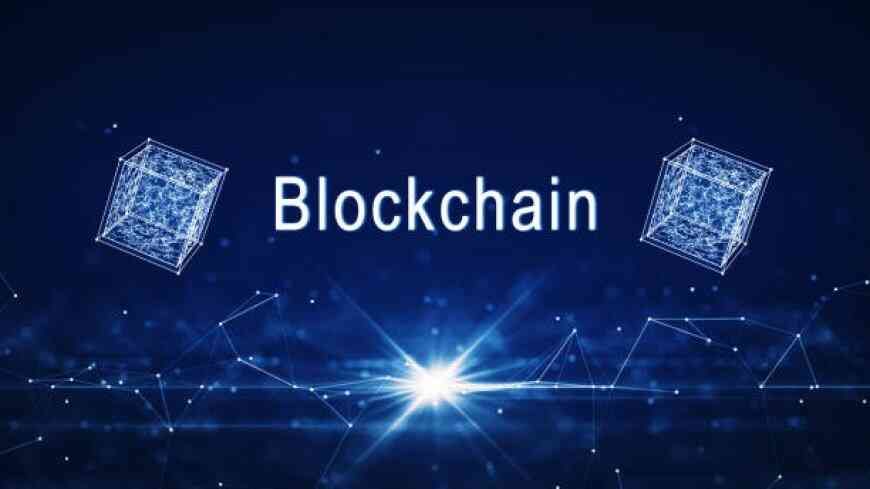
Blockchain technology has completely changed several businesses and provided game-changing answers for the digital sphere. The importance of a blockchain developer has increased in tandem with the growing demand for blockchain applications. These experts are essential to the development, deployment, and upkeep of blockchain systems. The abilities of a blockchain developer are now crucial for managing and participating in the changing digital economy as companies look for novel ways to use decentralized technology.
What is Blockchain?
Blockchain is a decentralized and distributed ledger technology that enables the secure and transparent recording of transactions across a network of computers. In essence, it's a chain of blocks, where each block contains a list of transactions. What sets blockchain apart is its decentralized nature; instead of relying on a central authority, it leverages a network of nodes to validate and agree on the state of the ledger. Each block is cryptographically linked to the previous one, forming an unalterable chain.
This design ensures the integrity and immutability of the data stored on the blockchain. Originally introduced as the underlying technology for Bitcoin, blockchain has since evolved to find applications across various industries, from finance and supply chain to healthcare and beyond. Its decentralized and tamper-resistant characteristics make it a powerful tool for creating trust in digital interactions and revolutionizing traditional systems.
What Is Blockchain Development?
Blockchain development is a specialized field within the broader domain of software development that focuses on creating and maintaining blockchain networks and decentralized applications (DApps). At its core, a blockchain is a distributed and immutable ledger that records transactions across a network of computers securely and transparently. Blockchain development involves designing and implementing the protocols, consensus mechanisms, and smart contracts that underpin these decentralized systems. Developers in this field work with various programming languages, such as Solidity for smart contract development, and engage with blockchain platforms like Ethereum orDinance Smart Chain.
The goal of blockchain development is to harness the power of decentralized, trustless networks to enable secure and transparent transactions, streamline processes, and create innovative solutions across a wide range of industries. As the demand for blockchain technology continues to grow, blockchain developers play a crucial role in shaping the future of decentralized applications and the broader digital economy.
What Does a Blockchain Developer Do?
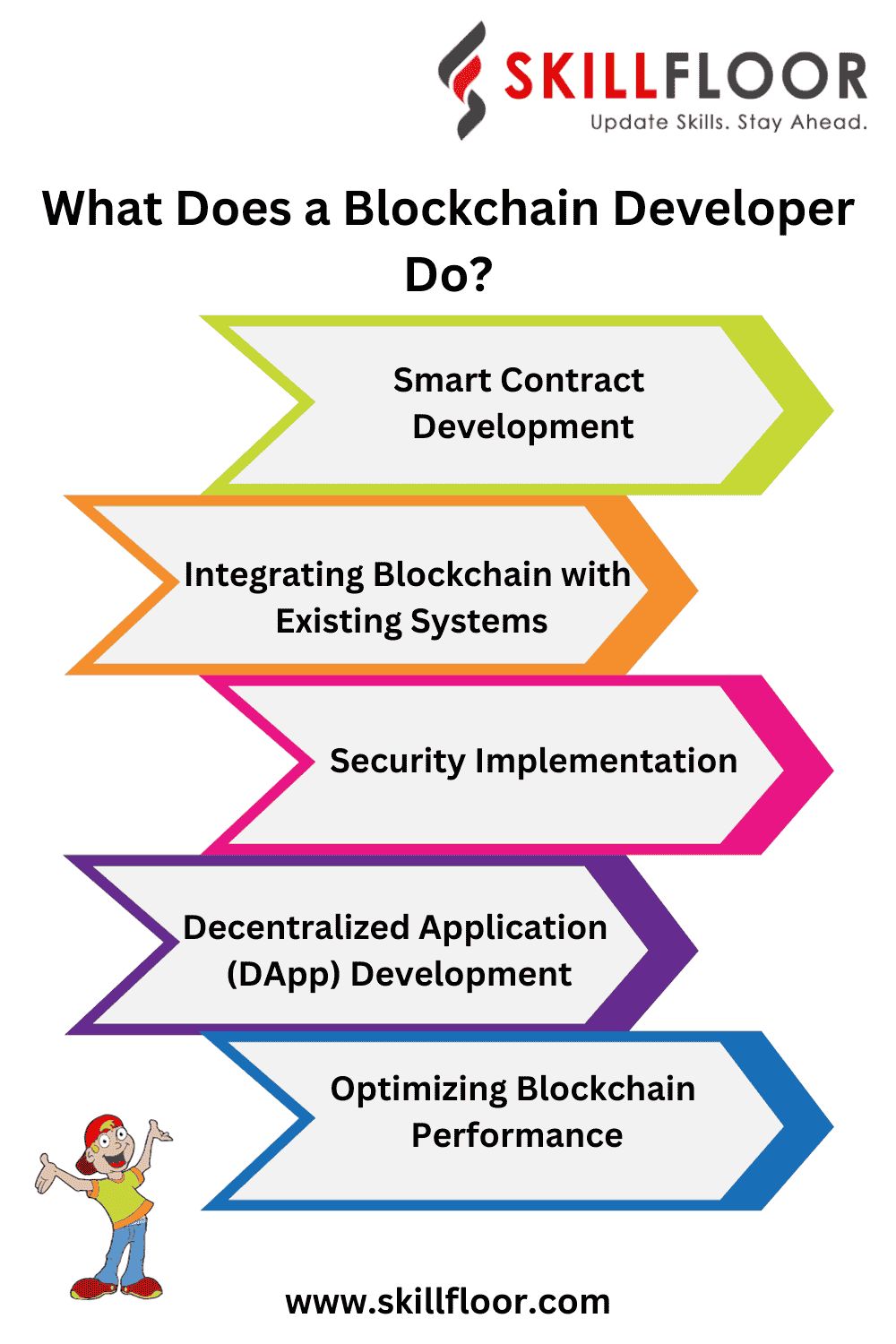
A blockchain developer plays a crucial role in the design, development, and maintenance of blockchain systems and applications. These professionals leverage their expertise in programming, cryptography, and decentralized technologies to create secure and transparent digital ecosystems. Here's a breakdown of the key responsibilities and tasks that define the role of a blockchain developer
1. Designing and Developing Blockchain Protocols
Protocol Development Blockchain developers are responsible for designing and implementing the underlying protocols that govern how a blockchain network operates. This includes consensus mechanisms, data structures, and communication protocols.
2. Smart Contract Development
Smart Contract Programming A significant part of a blockchain developer's role involves writing and deploying smart contracts. These self-executing contracts automate predefined rules and conditions, facilitating trustless and transparent transactions on the blockchain.
3. Choosing and Implementing Consensus Mechanisms
Consensus Algorithm Implementation Blockchain networks rely on consensus mechanisms to validate and agree on transactions. Developers must choose and implement suitable consensus algorithms, such as Proof of Work (PoW) or Proof of Stake (PoS), depending on the requirements of the project.
4. Integrating Blockchain with Existing Systems
Integration with External Systems In many cases, blockchain solutions need to integrate with existing systems and databases. Developers must ensure seamless communication between the blockchain network and external applications to facilitate data exchange.
5. Security Implementation
Cryptography Expertise Security is paramount in blockchain development. Developers use cryptographic techniques to secure transactions, manage private keys, and protect the integrity of the blockchain. Understanding and implementing robust security measures is a critical aspect of the role.
6. Decentralized Application (DApp) Development
DApp Creation Blockchain developers design and develop decentralized applications (DApps) that run on the blockchain. This involves frontend development, backend logic implementation, and integration with smart contracts.
7. Optimizing Blockchain Performance
Scalability and Performance Optimization As blockchain networks grow, developers face the challenge of optimizing performance and scalability. This may involve implementing solutions like sharding, layer-two scaling solutions, or other techniques to enhance the efficiency of the blockchain.
8. Collaboration and Communication
Team Collaboration Blockchain development is often a collaborative effort. Developers work closely with other team members, including blockchain architects, UI/UX designers, and project managers, to bring a project from conception to completion.
9. Continuous Learning and Adaptation
Staying Updated Given the dynamic nature of blockchain technology, developers must stay informed about the latest advancements, industry best practices, and emerging trends. Continuous learning is essential to keep pace with the rapidly evolving landscape.
How Does One Become a Blockchain Developer?
Becoming a blockchain developer is an exciting journey that involves acquiring a unique set of skills and navigating the dynamic world of decentralized technology. Here's a breakdown of the key steps and considerations on the path to becoming a blockchain developer
1. Grasp the Fundamentals of Blockchain Technology
Understand the basic concepts of blockchain, including its decentralized nature, distributed ledger technology, and consensus mechanisms.
Explore the history and evolution of blockchain to gain insights into its various applications beyond cryptocurrencies.
2. Master Programming Languages
Develop proficiency in programming languages such as Python, JavaScript, or C++, as they are commonly used in blockchain development.
Gain a solid understanding of data structures, algorithms, and object-oriented programming, laying the foundation for more advanced blockchain concepts.
3. Dive into Cryptography
Cryptography is a fundamental aspect of blockchain security. Learn about hashing, digital signatures, and public-key cryptography to ensure the integrity and confidentiality of transactions.
4. Explore Smart Contracts and Solidity
Delve into the world of smart contracts, self-executing contracts with terms written in code.
Learn Solidity, the programming language used for creating smart contracts, and understand how they facilitate automation on the blockchain.
5. Understand Blockchain Platforms
Explore different blockchain platforms like Ethereum, Binance Smart Chain, and Polkadot.
Familiarize yourself with their unique features, use cases, and the development environments they offer.
6. Decentralized Application (DApp) Development
Gain hands-on experience in developing decentralized applications (DApps) that run on blockchain networks.
Explore frameworks like Truffle and tools like Metamask to streamline the DApp development process.
How to Make a Successful and Worthwhile Career as a Blockchain Developer?
Embarking on a successful and worthwhile career as a blockchain developer requires a strategic approach and a commitment to continuous learning. Firstly, mastering the foundational skills of programming is crucial, with languages like Python, JavaScript, or C++ serving as essential tools in a developer's arsenal. Delving into the intricacies of cryptography is equally important, as it forms the bedrock of blockchain security. Smart contract development using languages like Solidity opens the door to creating decentralized applications (DApps) on platforms like Ethereum.
Familiarity with various blockchain platforms, staying abreast of industry standards, and actively engaging with the blockchain community contribute to a well-rounded skill set. cultivating problem-solving skills, embracing continuous learning, and honing effective communication abilities are vital for long-term success. A successful career as a blockchain developer hinges on the ability to adapt to the dynamic nature of the technology, stay curious, and contribute to the ever-expanding decentralized innovation.
Learn the foundations of programming, cryptography, and smart contract development to start your exciting journey toward being a blockchain developer. Dive into the building of decentralized applications (DApps), investigate blockchain systems, and keep up with market developments. Effective communication, problem-solving abilities, and ongoing learning are necessary for a successful career in blockchain development. Handle the constantly changing digital environment, support decentralized innovation, and influence the direction of blockchain technology.



















































